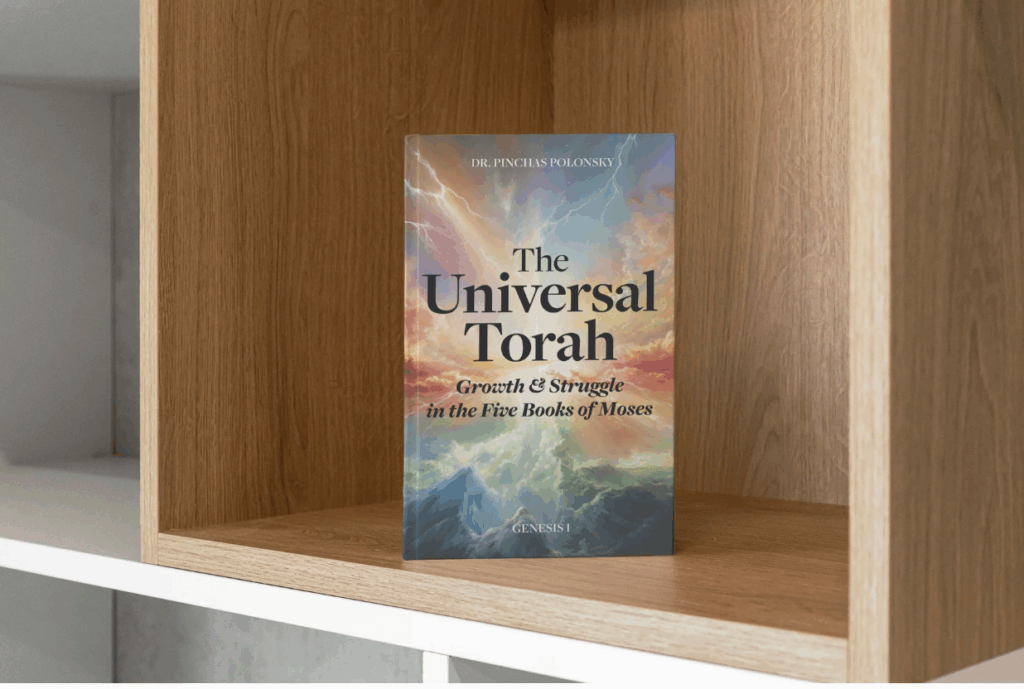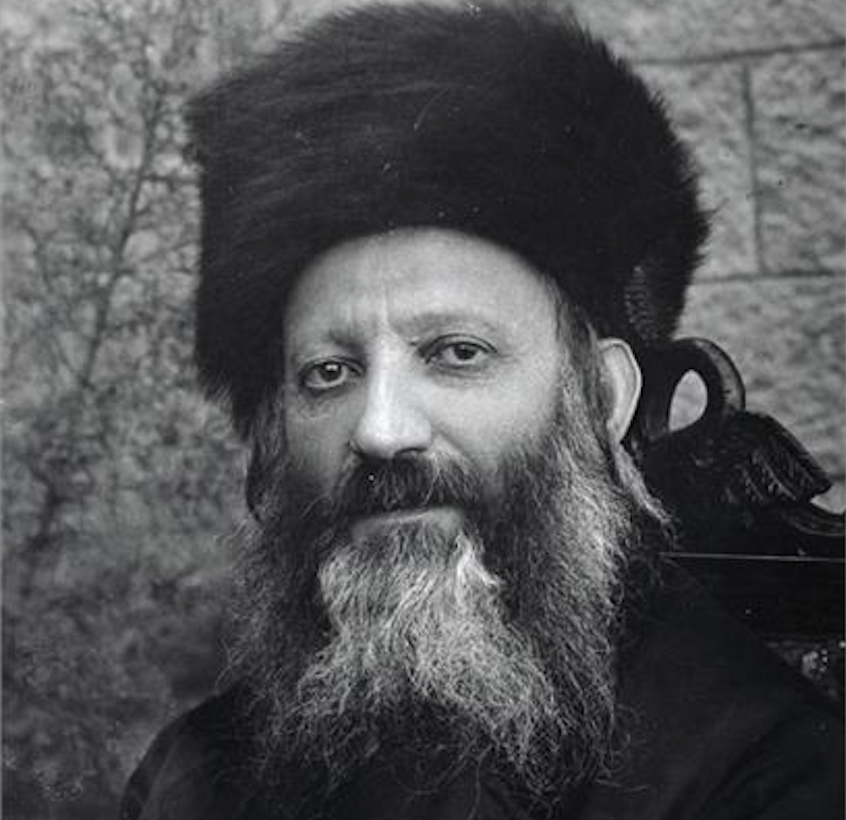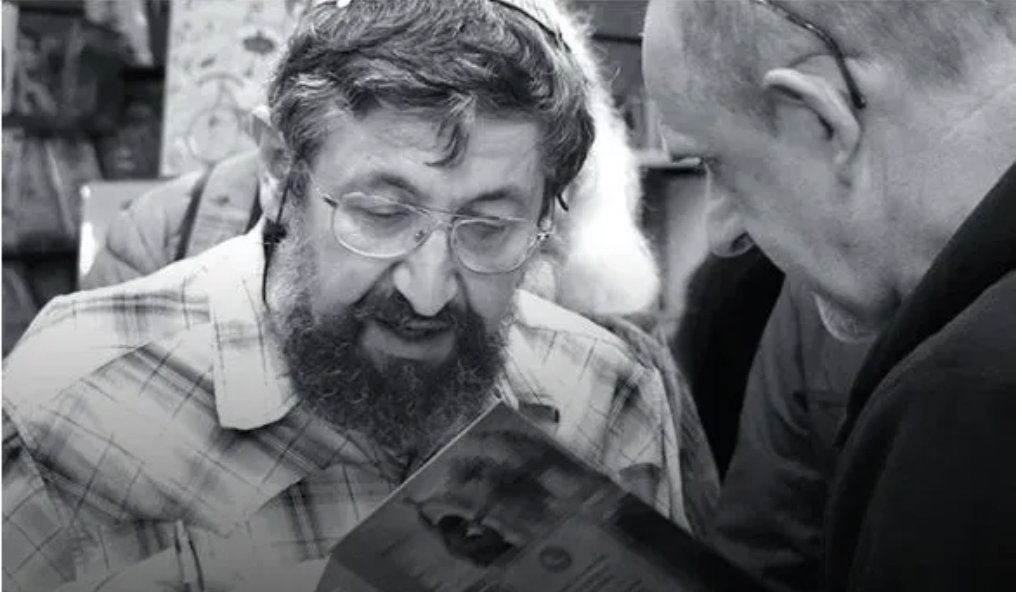Most of us read the Bible expecting saints and spotless heroes, people who seemed born with perfect faith. Then you sit with someone like Dr. Pinchas Polonsky and realize how small that vision really is. He speaks about Scripture the way a soldier speaks about survival. To him, the Torah is not a book on a shelf. It is a pulse, a struggle, a dialogue that refuses to stay silent. It grows with us. It challenges us. It demands that we become more than we are.
Dr. Polonsky’s own life reads like a chapter from that kind of Bible.
He was raised in the Soviet Union, where Judaism was nearly erased, yet somehow a spark inside him refused to die. As a teenager, he slipped into the underground world of forbidden Hebrew classes, whispered Torah sessions in cramped apartments, and smuggled pages of commentary copied by hand. He helped run a secret kindergarten. He watched friends get interrogated. He learned to teach the Bible with the KGB on the other side of the door. And he kept going.
When freedom finally cracked open with Perestroika, he reached Israel and became one of the leading Torah teachers of the Russian-speaking Jewish world. Today, he devotes himself to helping Jews and Christians understand the Bible not as ancient history, but as a living conversation that still shapes us.
What follows is our conversation, and a must-read for anyone who wants to understand the spiritual vision behind his incredible work, The Universal Torah.
Q and A With Dr. Pinchas Polonsky
Your journey began with teaching the Bible underground in the Soviet Union. What gave you the courage to take such risks for your faith, and how did those years influence your calling to preach the word of God?
POLONSKY: I grew up in a completely non-religious and assimilated family in the Soviet Union and knew almost nothing about Judaism. But by the time I finished school, I already knew I did not want to stay there. My classmates, many of them Jewish, began secretly listening to radio broadcasts from Israel. We started learning Hebrew underground and then Torah. It was a national awakening more than anything else. After generations of assimilation, something inside us suddenly came alive.
My friends and I openly declared ourselves supporters of Israel and emigration. We formed an underground network of classes and teachers. We printed our own books using a phototype machine and even ran a secret kindergarten. The KGB harassed us, but we kept saying the same thing. Let us leave, and we will not cause you any trouble. Christians and Jews in the West supported us, which prevented mass persecution. When Perestroika began in 1986, we were finally allowed to emigrate. We used to say we reached the Middle East just in time, before they could exile us to the Far East.

In your series, you describe the heroes of the Bible as people who grow and change, not as perfect figures. Why is that important for both Jewish and Christian readers?
POLONSKY: The Torah speaks differently to every generation. If Abraham or Noah were presented as perfect from the beginning, we could not learn from them. Growth is the divine model. Our world values progress and development, and the Torah teaches that this is not only human but divine. A perfection that never changes is not biblical. Real spiritual life requires development.
You have studied the teachings of Rabbi Abraham Isaac Kook for decades. How did his ideas shape your understanding of the Torah?
POLONSKY: Rav Kook is the most important thinker of modern Israeli Judaism. One of his central ideas is that development itself is divine. If God is perfect, then God cannot lack development. Humanity grows because we are in a constant dialogue with God. When civilization changes, that is part of that dialogue. Religion must understand this, or it will fail to answer the questions of its time.
Rav Kook taught that our understanding of God is always deepening because we grow. God wants our progress the same way parents want their children to develop. Without development, religion becomes stagnant and loses meaning.
You call your interpretation “The Universal Torah.” What does that mean for non-Jewish readers?
POLONSKY: Most Torah commentaries were written for religious Jews in past centuries. But today, Jews, Christians, and seekers live in a universal culture shaped by science and global communication. Commentary must therefore speak to everyone and speak to universal values. The Torah belongs to all of humanity, and its deeper lessons apply far beyond one community.

Many non Jews see the Hebrew Bible as a historical document. You present it as a living path. How can readers approach Scripture the same way you do?
POLONSKY: Scripture is sacred history. It records a divine human dialogue that continues in every generation. It works like a mirror. If you look for history, you will see history. If you look for God’s voice, you will hear God’s voice. Our job as teachers is to help readers find that living dialogue.
You write that God’s relationship with humanity changes throughout the Bible. What does this reveal about His love and partnership with Jews and Christians today?
POLONSKY: In Exodus, God speaks to former slaves, so the tone is awe and discipline. Forty years later, in Deuteronomy, God speaks to a mature people, so the tone becomes love and partnership. The divine human relationship grows because we grow. This teaches us that we must always strive to reach a higher level with God.
From the story of Abraham and Sarah, what do we learn about faith and obedience?
POLONSKY: Abraham did not simply obey. He argued with God. Jacob wrestled with God. Moses disagreed with God more than once. This is not rebellion. It is spiritual maturity. God wants us to use our inner moral intuition.
But Abraham also trusted the divine unfolding even when he could not understand it. Faith is not blind obedience. It is trust that the process God chooses, even when difficult, is ultimately right. We must participate in that process, not withdraw from it.
You connect Jewish tradition with ideas that resonate with Christians. What can Christian readers learn from The Universal Torah about God and His plan for humanity?
POLONSKY: We cannot understand God in Himself. We understand God in His relationship with us. That relationship is based on creativity and responsibility. Creativity is the first religious act, because it imitates God’s creation of the world.
As for God’s plan for humanity, it has always been universal. Israel was chosen to serve others, not to elevate itself. The nations accepting the Hebrew Bible was only the first stage. The deeper goal is that all humanity will come close to God.
If you had to summarize the message of The Universal Torah in one sentence, what would it be?
POLONSKY: Humanity is evolving, and therefore our understanding of God must evolve as well. If faith does not develop, people will abandon it.
Speaking with Dr. Polonsky, I was struck by how naturally he bridges the ancient and the modern. His message is clear. Faith must grow with humanity, or else humanity will grow without faith.
For Christians who want to understand the Hebrew Bible at a deeper level, and for anyone searching for a spiritually mature path, his book, The Universal Torah, Genesis I, sold on our own store, Israel365store.com, is a powerful place to begin. It offers a way of reading Scripture that is alive, challenging, and filled with hope for anyone who believes that God is still speaking.




